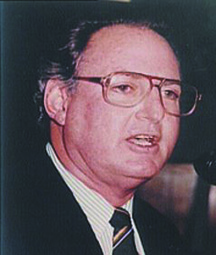By Tony Cozier
AS he trawled through the reams of research that shaped his report to the West Indies Cricket Board (WICB) last March, director of cricket Richard Pybus would have been struck by failings in several areas that have led to the team’s drastic decline.
Among his 19 proposals approved by the WICB directors about how to reverse the slump was that a coaching manager be appointed to oversee and implement programmes regionally.
The aim, as he put it, was “a standardized Caribbean philosophy and methodology of coaching relevant to the cricket culture of the region, including the review and updating of the coaching syllabi, a continuous education programme to ensure coaches are up to date with game development, skills and knowledge to develop world-class players and team.”
Before passing as head coach last week, Ottis Gibson often complained, as others before him, of uncoordinated coaching from territory to territory. Bajans, for instance, would come into the West Indies team having gone through a different system than Trinidadians, the cricket upbringing of Guyanese varied, say, from Jamaicans. And so on.
Pybus recognized the problem and sought to deal with it.

It would hardly have been necessary had the WICB not allowed 10 years to pass after its original coaching manager, the Australian Darren Holder, cleared out after seven months in the post. He is yet to be replaced.
Holder, then a senior coach with Queensland, took up the position in June 2004. According to the WICB, he would be the technical officer responsible for the coaching development component of its Cricket Development Unit. The WICB’s statement all but replicated Pybus’s recommendation.
It listed Holder’s duties as the management of the WICB’s coaching education plan and provision of specialist courses. He would also oversee cricket at the Shell Academy (the forerunner of the High Performance Centre) and organise and co-ordinate the Emerging Players’ Programme.
Roger Brathwaite, WICB chief executive at the time, declared that Holder would pass on “technical and technological skills” to local coaches.
As it turned out, Holder didn’t last. Before his exit, he forsook his originally assigned duties and, under the influence of newly appointed head coach Bennett King, a fellow Australian from Queensland, joined the West Indies team’s support staff.
Holder has returned to Trinidad three times in the past six years to conduct Level 1 courses at the University of Trinidad and Tobago under the Australia Sport outreach programme, at the Sir Frank Worrell Development Centre and under the Atlantic Cricket Excellence (ACE) programme for primary school teachers.
In the meantime, the WICB has remained without a coaching manager; the coaches of each territory simply continue to do their own thing. Under the WICB, they are limited to Level 2 certification, short of Level 3 and Level 4 (the highest) that are required for international recognition.
They had to turn to the England Cricket Board (ECB) and Cricket Australia to gain such recognition.
Henderson Springer, Barbados’ head coach, gained his Level 3 at the ECB courses in the Lilleshall Sports Centre in Shropshire with a refresher when Cricket Australia held Level 3 courses for West Indian and United States’ coaches in Fort Lauderdale, Florida, a year ago. David Williams, Trinidad and Tobago’s head coach and former West Indies’ assistant coach, was also among the several West Indians in Fort Lauderdale.
Why Florida?
Cricket Coaches Australia recently struck up a relationship with the USA Cricket Association (USACA) in an effort to develop the game there. USACA previously relied for its coaches’ education on the WICB whose previous development officer, the Barbadian Wendell Coppin, conducted its Level 2 coaching certification in California in October 2011. It is not difficult to deduce why Australia has taken over.
Attendance at such courses, in the U.S., England and also Dubai, headquarters of the International Cricket Council (ICC), is not cheap. The cost of the six-day residential Level 3 course is Aus$5000 (US$450); Caribbean participants rely on financial input from the individual boards along with what sponsorship they can source. A programme in Dubai, with air travel and accommodation tacked on, can be in the vicinity of US$4,000.
These are the reasons for Pybus’ insistence that the regional coaching manager needs to be in place as soon as possible so that he can implement his assigned responsibilities, allowing West Indian coaches to be accredited by the WICB rather than having to undertake expensive overseas trips for the same purpose.
Apart from negating the necessity for the Caribbean Premier League (CPL) to import Level 4 coaches from overseas to take charge of five of its six franchise teams, as it did this year, it would eliminate what has become one of the many weaknesses affecting West Indies cricket.
Michael Muirhead, the WICB’s chief executive, last week publicly encouraged West Indian candidates to put in their applications to fill the post vacated by Gibson – with the obvious proviso.
“We would talk to everybody,” he said. “We are going on a worldwide hunt. We always would encourage West Indians but we have to evaluate them and put out our criteria.”
At present, West Indians with the qualifications and the experience to fit the bill are limited.
Phil Simmons, the former Test opener of the 1980s, has had widely acclaimed success as Ireland’s head coach; Roger Harper, who was in charge of the West Indies between 2004 and 2007 and Kenya for a year leading into the 2007 World Cup; Gordon Greenidge, the outstanding opening batsman of the years of dominance under Clive Lloyd and Viv Richards, led Bangladesh to the ICC Trophy in 1998 and, as a result, to Test recognition.
All gained their Level 3 or 4 certification in England under the ECB’s aegis when resident there. The expectation is that the pool of similarly internationally recognised West Indian coaches will rapidly expand under the renewed objective to standardise the system.





